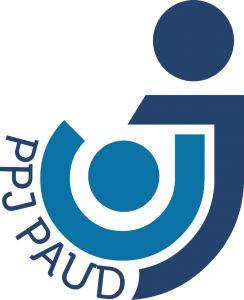KEPRIBADIAN ANAK DARI POLA ASUH AUTHORITARIAN DALAM PRESPEKTIF ISLAM
DOI:
https://doi.org/10.30736/jce.v4i2.259Keywords:
Child's Personality, Parenting, Authoritarian,Abstract
The problem of children and education is a very interesting problem for an educator and parents who face children who need education all the time. Nurturing and raising a child means caring for his life and health and educating him with full sincerity and affection also also forgive the mistakes of children. Departing from this fundamental reason researchers are interested in discussing further related to this issue in the hope that it can provide educational development going forward. This study aims to determine how the child's personality from authoritarian parenting. This research method uses descriptive qualitative case study approach. The subject of this study was a 10-year-old girl who was in elementary school. The results showed that the authoritarian parenting mother had a great influence on the formation of the child's personality, the child became bolder, easily rebelled and easily influenced, the child must be on the other hand to be disciplined and learn to respect time. The subject of this study was a 10-year-old girl who was in elementary school.References
Adhim, Fauzil. Mohammad. (1997). Bersikap Terhadap Anak, Pengaruh Perilaku Orang Tua Terhadap Kenakalan Anak. Yogyakarta: Titian Ilahi Press
Gunarasa, D. Singgih. & Gunarsa, D. Singgih. Yuli. (2003). Psikologi Perkembangan Anak Dan Remaja. Jakarta: Gunung Mulia
Marzuki, Chairan .A. (1998). Anak Saleh Dalam Asuhan Ibu Muslimah. Yogyakarta: Mitra Pustaka
Santrock, John. W. (2003). Adolescence Perkembangan Remaja. Jakarta: Erlangga
Yusuf SLN dan Juntika N. 2007. Teori Kepribadian. Bandung: Rosda
Yusuf, LN. Syamsu. H. Dr. (2005). Psikologi Perkembangan Anak Dan Remaja. Bandung: PT Remaja Rosdakarya.
Zurayk, Ma’ruf. (1983). Aku Dan Anakku. Bandung: Al- Bayan
Lestari, S. (2015). Pendidikan Karakter Anak dalam Keluarga. An-Nisa’, 8(1), 127–140.
Padjrin, P. (2016). Pola Asuh Anak dalam Perspektif Pendidikan Islam. INTELEKTUALITA, 5(1), 1. https://doi.org/10.19109/intelektualita.v5i1.720
Rakhmawati, I. (2015). Peran Keluarga dalam Pengasuhan Anak. Jurnalbimbingan Konseling Isla, 6(1), 1–18. https://doi.org/10.21043/kr.v6i1.1037
Respati, W. S., Yulianto, A., & Widiana, N. (2006). Perbedaan Konsep Diri Antara Remaja Akhir Yang Mempersepsi Pola Asuh Orang Tua Authorian, Permissive dan Authoritative. Jurnal Psikologi, 4(2), 119–138. https://doi.org/http://digilib.esaunggul.ac.id/public/UEU-Journal-4977-ibuwin.pdf.
Sarkawi, A. (2019). MELEJITKAN POTENSI ANAK DALAM KELUARGA, DITINJAU DARI PERSPEKTIF ISLAM. Turast : Jurnal Penelitian Dan Pengabdian, 4(2), 163–176. https://doi.org/10.15548/turast.v4i2.346
Taubah, M. (2016). PENDIDIKAN ANAK DALAM KELUARGA PERSPEKTIF ISLAM. Jurnal Pendidikan Agama Islam (Journal of Islamic Education Studies), 3(1), 109. https://doi.org/10.15642/pai.2015.3.1.109-136
Downloads
Published
How to Cite
Issue
Section
License
Please find the rights and licenses in JCE (Journal of Childhood Education). By submitting the article/manuscript of the article, the author(s) agree with this policy. No specific document sign-off is required.
1. License
Use of articles will be governed by the Creative Commons Attribution - ShareAlike license as currently displayed on Creative Commons Attribution-ShareAlike 4.0 International License.
2. Author(s)' Warranties
The author warrants that the article is original, written by stated author(s), has not been published before, contains no unlawful statements, does not infringe the rights of others, is subject to copyright that is vested exclusively in the author and free of any third party rights, and that any necessary written permissions to quote from other sources have been obtained by the author(s).
3. User Rights
JCE (Journal of Childhood Education)'s spirit is to disseminate articles published are as free as possible but there is a little payment for publication. Under the Creative Commons license, JCE (Journal of Childhood Education) permits users to copy, distribute, display, and perform the work for commercial purposes. Users will also need to attribute authors and JCE (Journal of Childhood Education) on distributing works in the journal and other media of publications.
4. Co-Authorship
If the article was jointly prepared by more than one author, any authors submitting the manuscript warrants that he/she has been authorized by all co-authors to be agreed on this copyright and license notice (agreement) on their behalf, and agrees to inform his/her co-authors of the terms of this policy. JCE (Journal of Childhood Education) will not be held liable for anything that may arise due to the author(s) internal dispute. JCE (Journal of Childhood Education) will only communicate with the corresponding author.
5. Miscellaneous
JCE (Journal of Childhood Education) will publish the article (or have it published) in the journal if the article’s editorial process is successfully completed. JCE (Journal of Childhood Education)'s editors may modify the article to a style of punctuation, spelling, capitalization, referencing and usage that deems appropriate. The author acknowledges that the article may be published so that it will be publicly accessible and such access will be free of charge for the readers as mentioned in point 3.
JCE (Journal of Childhood Education) by Universitas Islam Lamongan is licensed under a Creative Commons Attribution-ShareAlike 4.0 International License.Based on a work at http://journalfai.unisla.ac.id/index.php/jce.












